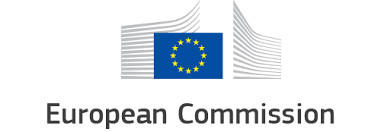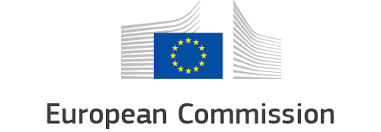
For the alleged participation in a cartel to manipulate the price of the Euribor financial benchmark, the European Commission has fined Credit Agricole, HSBC and JPMorgan Chase) a total of 485 million euros ($520 million).
The Euribor interest rate which was set using quotes submitted by a panel of banks and is widely used in international money markets were distorted by the conglomerate of which the banks were also a part. The Commission said on Wednesday that the banks were part of a seven-bank cartel and the incident occurred between September 2005 and May 2008.
For five-month involvements in the cartel, JPMorgan Chase was fined 337.2 million euros and Credit Agricole 114.7 million euros. For participating in the cartel for just one month, HSBC was set to pay 33.6 million euros.
JPMorgan said it did not accept the outcome.
“We have cooperated fully with the European Commission throughout its five year investigation. We did not engage in any wrongdoing with respect to the EURIBOR benchmark."
"We will continue to vigorously defend our position against these allegations, including through possible appeals to the European courts,” it added.
While HSBC said at the time it would defend itself vigorously, Credit Agricole said at the time it would examine the charges.
In what was the sixth largest collective cartel fine ever handed down by the European Commission, Deutsche Bank, RBS and Societe Generale admitted guilt in December 2013 and were fined 824.6 million euros. Barclays avoided a penalty because it alerted the Commission.
A series of chatroom messages ongratulating each other on their actions were found to have been made between the traders at the banks, the Commission found.
"On days when traders received money calculated on the basis of Euribor, (they) had an interest in a high Euribor rate. On days when a trader needed to pay... he would want to have a low Euribor rate," EU competition commissioner Margrethe Vestager said.
"The participation in such schemes was very lucrative for the banks... tiny, tiny movements in the Euribor rate can have a huge impact because of the volumes of trading," she added.
In the first half of 2016, the market value of over-the-counter interest (OTC) rate derivative contracts in euros was put at $6.4 trillion, 31 percent of all OTC derivatives by the Bank for International Settlements. Such trades would typically be based on financial benchmark rates such as Euribor.
For rigging the London interbank offered rate (Libor), used for various currencies including the yen, and its euro cousin Euribor, the U.S. and European regulators have so far handed down large fines to more than 10 banks and brokerages.
Prosecutors have also charged more than a dozen men with fraud-related offences.
The Commission is still looking into foreign exchange trading.
(Source:www.reuters.com)
The Euribor interest rate which was set using quotes submitted by a panel of banks and is widely used in international money markets were distorted by the conglomerate of which the banks were also a part. The Commission said on Wednesday that the banks were part of a seven-bank cartel and the incident occurred between September 2005 and May 2008.
For five-month involvements in the cartel, JPMorgan Chase was fined 337.2 million euros and Credit Agricole 114.7 million euros. For participating in the cartel for just one month, HSBC was set to pay 33.6 million euros.
JPMorgan said it did not accept the outcome.
“We have cooperated fully with the European Commission throughout its five year investigation. We did not engage in any wrongdoing with respect to the EURIBOR benchmark."
"We will continue to vigorously defend our position against these allegations, including through possible appeals to the European courts,” it added.
While HSBC said at the time it would defend itself vigorously, Credit Agricole said at the time it would examine the charges.
In what was the sixth largest collective cartel fine ever handed down by the European Commission, Deutsche Bank, RBS and Societe Generale admitted guilt in December 2013 and were fined 824.6 million euros. Barclays avoided a penalty because it alerted the Commission.
A series of chatroom messages ongratulating each other on their actions were found to have been made between the traders at the banks, the Commission found.
"On days when traders received money calculated on the basis of Euribor, (they) had an interest in a high Euribor rate. On days when a trader needed to pay... he would want to have a low Euribor rate," EU competition commissioner Margrethe Vestager said.
"The participation in such schemes was very lucrative for the banks... tiny, tiny movements in the Euribor rate can have a huge impact because of the volumes of trading," she added.
In the first half of 2016, the market value of over-the-counter interest (OTC) rate derivative contracts in euros was put at $6.4 trillion, 31 percent of all OTC derivatives by the Bank for International Settlements. Such trades would typically be based on financial benchmark rates such as Euribor.
For rigging the London interbank offered rate (Libor), used for various currencies including the yen, and its euro cousin Euribor, the U.S. and European regulators have so far handed down large fines to more than 10 banks and brokerages.
Prosecutors have also charged more than a dozen men with fraud-related offences.
The Commission is still looking into foreign exchange trading.
(Source:www.reuters.com)





